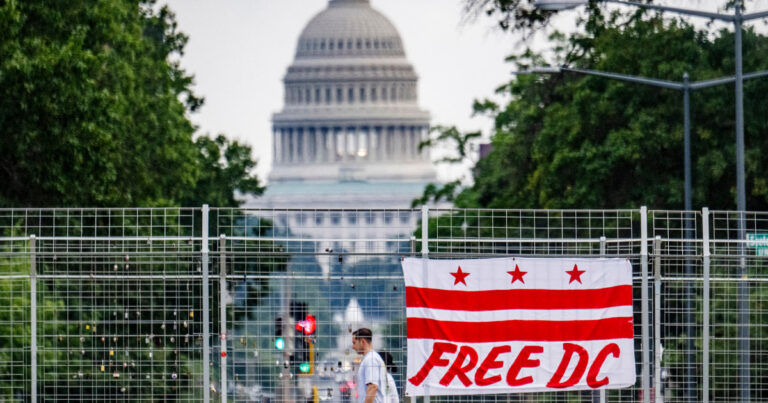Congress Returns: Key Issues Facing Lawmakers
WASHINGTON — As Congress reconvenes after a month-long August recess, critical issues loom large. The impending government shutdown deadline of September 30, a standoff over President Trump’s nominees, and a renewed push regarding Jeffrey Epstein’s files are at the forefront of the agenda.
Government Shutdown Deadline Approaches
The most immediate challenge is the September 30 deadline for government funding. With the stakes high, both Republican and Democratic leaders are urging cooperation. Any bill to avoid a shutdown requires bipartisan support, necessitating at least 60 votes in the Senate. Unfortunately, lawmakers currently lack a clear funding framework, making it increasingly likely that divisions will deepen as the deadline approaches.
Controversial Fund Cuts by the White House
Adding to the uncertainty, the White House has signaled plans to cut $4.9 billion in federal funds using a method labeled a “pocket rescission.” This tactic has drawn sharp criticism from both Democrats and some Republicans, with Senate Minority Leader Chuck Schumer denouncing it as unlawful. He emphasized that these actions reflect a broader rejection of bipartisanship in Congress.
Push for Epstein File Releases Gathers Momentum
Another major issue heating up in Congress is the push to force the Justice Department to release files related to Jeffrey Epstein. In July, Rep. Thomas Massie, R-Ky., initiated a resolution to require the release of these documents. Following the recess, he and co-sponsor Rep. Ro Khanna, D-Calif., have planned a news conference featuring Epstein’s victims to bolster support for their cause.
Bipartisan Efforts to Ban Congressional Stock Trading
In response to ongoing concerns about conflicts of interest, lawmakers are also launching a renewed, bipartisan push to prohibit themselves from trading individual stocks. Rep. Anna Paulina Luna, R-Fla., is poised to file a discharge petition to expedite a vote on the proposed ban. Advocates argue that this initiative is crucial for restoring public trust in Congress.
Senate’s Potential “Nuclear” Move on Nominations
Simultaneously, Republican senators are discussing using the “nuclear option” to expedite the confirmation of Trump’s nominees for sub-Cabinet positions. Citing Democratic obstruction, Senate Majority Whip John Barrasso stressed that Republicans are committed to efficiently confirming qualified nominees despite the ongoing opposition. The tension over this issue raises questions about the Senate’s operational integrity.
CDC Leadership Under Scrutiny
The fallout from recent firings within the Trump administration, particularly at the CDC, has drawn attention. Critics are calling for hearings to investigate the leadership of Health and Human Services Secretary Robert F. Kennedy, Jr. His approach to public health policies, especially concerning vaccines, has sparked considerable debate among lawmakers and the public alike.
Conclusion: A Crucial Session Ahead
As Congress resumes its work, these pressing issues will demand urgent attention. With potential government shutdowns, the release of sensitive files, and calls for ethical reforms, the coming weeks promise to be a pivotal time for American lawmakers. Ensuring effective governance will require sincere bipartisan efforts as well as transparency on the part of elected officials.
